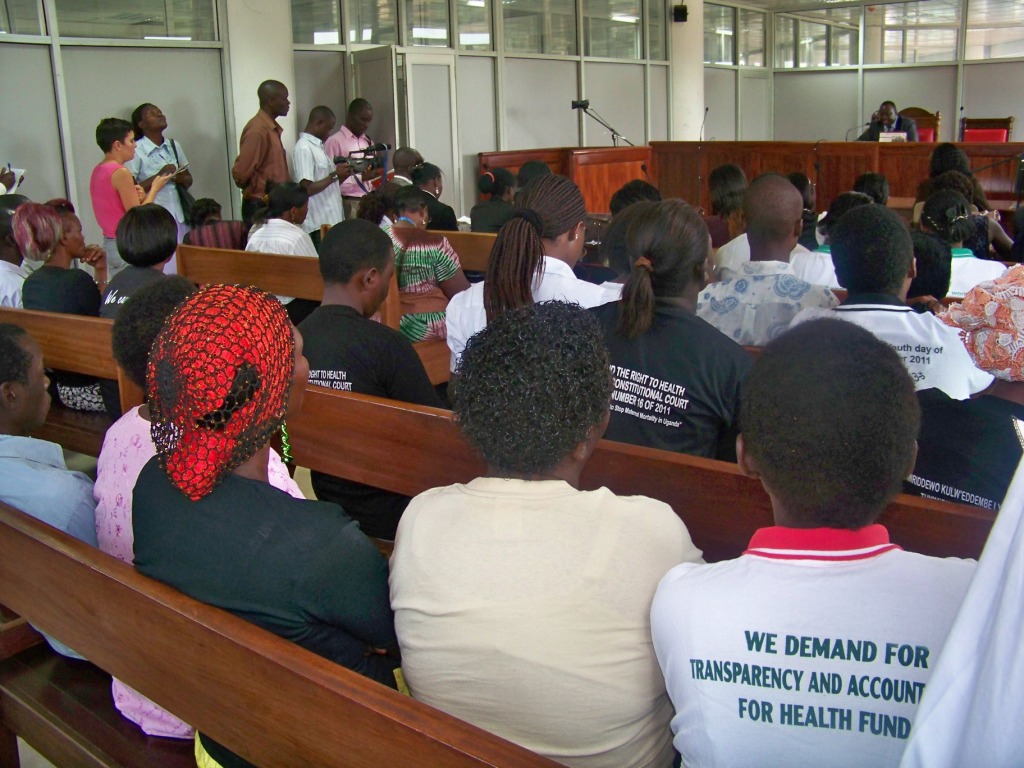(June 5 2012) Advocates have sharply criticised the ruling by Constitutional Court on whether or not the Court has standing to hear Petition Number 16 of 2011, a landmark case on preventable maternal mortality, the rights of women, the right to health and the right to life.
Justices ruled that the case, Petition Number 16 of 2011, must be dismissed, they believe that they have no competency to hear a case regarding realization and protection of these human rights.
“We are deeply disappointed that Constitutional Court has ruled that it has no standing to address a life and death issue affecting all Ugandans. We feel this is a grave mistake,” said Nakibuuka Noor Musisi of CEHURD and the Coalition to Stop Maternal Mortality. “This ruling means the Court wants the status quo to continue. They are standing in the way of constructive solutions to a crisis.”
“We did not receive the ruling we sought today. However, we are confident that in the near future, the Judiciary will realize its role in addressing the crisis of preventable maternal mortality in this country. We will not be deterred,” said Lillian Mworeko of the International Community of Women Living with HIV/AIDS East Africa. The advocates called for an appeal of the ruling to the Supreme Court. The ruling was in response to a preliminary objection raised by government on 26th October 2011.
we sought today. However, we are confident that in the near future, the Judiciary will realize its role in addressing the crisis of preventable maternal mortality in this country. We will not be deterred,” said Lillian Mworeko of the International Community of Women Living with HIV/AIDS East Africa. The advocates called for an appeal of the ruling to the Supreme Court. The ruling was in response to a preliminary objection raised by government on 26th October 2011.
The Petition was filed on 3rd March 2011, highlighting the cases of Sylvia Nalubowa and Jennifer Anguko, both of whom died unnecessarily in childbirth. It seeks a declaration that non-provision of essential maternal health commodities and services in government health facilities leading to the death of expectant mothers is an infringement on their rights to life and health.
While this case has delayed, many more preventable maternal deaths continue unchecked—Cecilia Nambozo, Nanteza Irene, Sanyu Kassaga and Sarah Nalukwago and many more. These people died as a result of failed maternal health care system in Uganda.
80% of maternal deaths are caused by severe bleeding, infections, unsafe abortion, high blood pressure and obstructed labor. Lack of access to life-saving HIV treatment is another major contributor to maternal deaths—and results in high rates of mother to child transmission of HIV.
In Uganda, untreated HIV contributes to about one in four maternal deaths—and triple-combination HIV treatment for all pregnant women would substantially reduce maternal mortality (See: Trends in Maternal Mortality, 1990-2008. WHO, UNICEF, UNFPA and the World Bank. 2010). Petition Number 16 of 2011 argues if the government does not provide essential medical commodities and health services to pregnant mothers, it is a violation of the Constitutional rights of Ugandans, including the right to health, and the rights of women.

